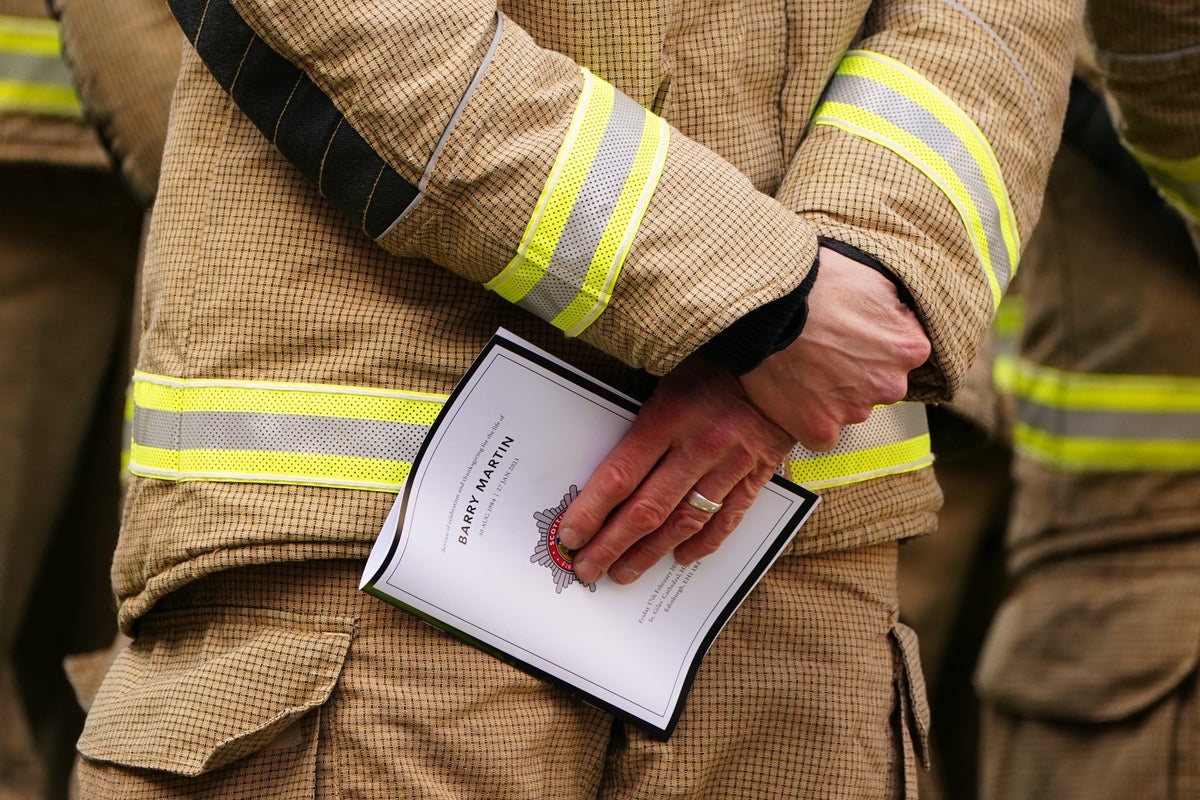
A firefighter who died in the line of duty was giving “maximum service”, a critic of a controversial strikes law has told ministers.
The tragic price paid by Barry Martin, a member of the Fire Brigades Union (FBU), for doing his job was highlighted by Labour’s Baroness Bryan of Partick at Westminster as she spoke out against a move by the UK Government to curb the impact of industrial action on key services.
She was among a large number of opposition peers to criticise the Strikes (Minimum Services Levels) Bill as it started its passage through the House of Lords.
The draft legislation would require minimum levels of service during walkouts by firefighters, ambulance staff, railway workers and those in other sectors deemed essential.
Last Friday she and other firefighters were in Edinburgh for the funeral of firefighter Barry Martin, an FBU member, who died doing his job. He wasn't giving minimum service. He, as many workers do, was giving maximum service— Lady Bryan of Partick
Speaking in the upper chamber, Lady Bryan said during the course of the Bill’s second reading debate she had received a message on her phone from a firefighter friend appealing for her to oppose the proposed law.
Her voice cracking with emotion, the peer said: “Last Friday she and other firefighters were in Edinburgh for the funeral of firefighter Barry Martin, an FBU member, who died doing his job.
“He wasn’t giving minimum service. He, as many workers do, was giving maximum service.”
The 38-year-old father of twin boys died on January 27 as a result of serious injuries sustained while battling a large blaze at the former Jenners department store in the city earlier that week.
Thousands of mourners and emergency service personnel had lined Edinburgh’s Royal Mile to pay their respects to the fallen firefighter.
Arguing against the Bill, Lady Bryan added: “Trade union rights were won in struggle, not granted from above.
“The movement has a proud tradition of fighting for basic human dignity, including challenging child labour, fighting for the eight-hour day, for time off at weekends, holidays, equal pay and much more.
“If the public had to choose between the Government and workers to set minimum standards for essential services, I think we can guess who they would trust to do what was in the best interests of service users.
“It wouldn’t be this Government that has allowed those very services to be driven into the ground.”
She warned the legislation would “set back industrial relations both in public services and beyond”.






